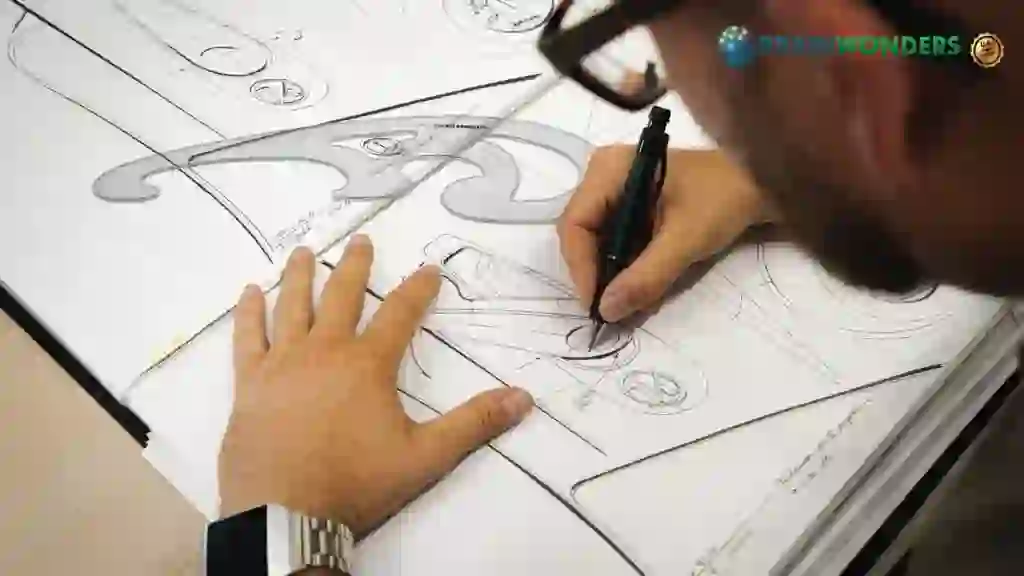How to become a Painter
Overview, Courses, Exam, Colleges, Pathways, Salary
.webp)
Overview
Who is Painter ?
A painter is a fine artist who creates paintings using a range of artistic elements. They make paintings, drawings, sketches using original ideas, personal renditions of others’ works, or imitations using reference materials. They create art on a variety of surfaces, from the traditional canvas or wood to buildings or even human subjects and sculptures. They do so using various mediums such as watercolours, acrylics, oil, temporary paint, ink, tempera, spray paint and gouache to name a few; each with different transparency, consistency, drying time. They combine various materials, methods, and techniques to produce artistic pieces that are not only visually appealing but also thought-provoking. A painter can adopt one or more out of a variety of styles on the spectrum of realistic to abstract, such as impressionism, surrealism, modernism, abstract style, expressionism, and folk styles. The subject of their paintings can be anything from nature and humans to abstract concepts and emotions. They employ a range of tools such as paint brushes, spray paints, sponge, sand etc in combination with various techniques including free-hand painting, stencilling, drip-painting to paint. Painters aim to depict various emotions, experiences, and ideas in an aesthetically appealing manner through their artwork.
Typical day at work
What does Painter do?
- Prepare the surface being used for painting, such as a clean canvas, walls
- Select and prepare the painting materials such as mixing, heating, melting ingredients
- Create rough drafts, sketches, templates or models for the piece
- Skillfully combine various visual techniques of shading, colour schemes, spatial orientation and perspective to create artistic effects
- Develop and maintain a diverse portfolio of own work that showcase one’s artistic abilities and personal style
- Submit grant proposals, write funding applications and sending applications for relevant prizes
- Engage in self-promotion activities such as networking, showcasing own work through social media, or attending private viewings and other events
- Liaise with industry contacts, art gallery owners, curators and other artists
- Negotiate sales contracts and commissions with the clients, agents, and gallery owners
Abilities and Aptitude needed
What are the skills, abilities & aptitude needed to become Painter?
To become a painter, one should be exceptionally creative with a talent for visual communication. They should be artistically inclined, imaginative, and well-versed with the knowledge of various techniques, styles, mediums, methods, and materials used in painting. They should be highly observant and detail-oriented in order to identify and paint the finer details in order to accurately translate their artistic concepts onto their canvas. Their communication and interpersonal skills are necessary in order to coordinate their efforts with the agents, understand the creative needs of their clients, build connections with prospective clients, and negotiate sales offers. Business skills are another important element for painters in order to effectively promote their skills and their artwork in order to gain recognition and secure further work opportunities. They should be self-disciplined individuals who are committed to their art throughout their professional lives.
Salary
Salary for Painter?
Minimum Monthly Salary: Entry-level painters may earn a minimum monthly income of around INR 15,000 to INR 25,000. These are typically individuals just starting their careers or working on smaller projects.
Maximum Monthly Salary: Experienced and highly skilled painters with a strong portfolio and a reputation in the industry may earn anywhere from INR 50,000 to INR 1,00,000 or more per month. The salary can significantly increase based on the demand for their artistic style and the complexity of their projects.
Annual Salary: The annual salary may range from INR 2,00,000 to INR 4,00,000 for entry-level or junior painters. As painters gain more experience, establish their brand, and undertake more prestigious projects, their annual income can increase from approximately INR 6,00,000 to INR 12,00,000 or higher.
Highest Paying Jobs and Scope: Painters who specialize in areas with high demand and commercial value, such as commissioned artworks, mural painting, or corporate branding, may have better earning potential. Successful painters with a unique artistic style and a strong online presence may also command higher fees for their artwork.
The scope for painters can vary based on their chosen specialization and artistic style. Painters can find opportunities in various industries, including fine arts, interior design, entertainment, advertising, and hospitality.
Pathways
How to become an Painter?
Entrance Exam
Entrance Exam for Painter ?
NIFT Entrance exam.
NID Entrance exam.
BFA Entrance exam.
CEED Entrance exam.
PEARL Entrance exam.
Jamia Millia Islamia BFA (Painting) Admission Entrance Test.
J.J. College of Arts Entrance Exam.
Courses
Which course I can pursue?
Best Colleges
Which are the best colleges to attend to become an Painter?
Industries
Which Industries are open for Painter?
- Fine Arts
- Interior Design
- Film and Entertainment
- Advertising and Marketing
- Hospitality
- Event Planning
- Restoration and Conservation
- Education
- Retail and Merchandising
- Public Art
internship
Are there internships available for Painter?
While internships for painters may not be as common as those in other fields, opportunities can still be available in certain circumstances. Internships for painters may be offered by art studios, galleries, museums, or even companies that focus on mural painting or other specialized painting services.
Internships in the field of painting can provide aspiring artists with valuable experience, exposure to different artistic techniques, and the chance to work alongside experienced painters. Internships may involve:
- Assisting with art projects.
- Learning from established artists.
- Gaining insights into the business side of the art industry.
Career outlook
What does the future look like for Painter?
Since painters can provide artistic support to creative and beautification efforts, their services are in demand across sectors particularly in advertising and education. They can be involved in making posters, designing for packaging, art restoration, murals, graffiti as well as painting prop pieces for theatre, television, film productions. Painters generally put their work up for display at art galleries, auctions, art exhibitions, craft fairs, museums, as well as on digital marketplaces. They produce art for sales and exhibitions which can be sold directly to the public or through a gallery, agent, or dealer. Many painters also produce art on a commission basis as requested by their clients, individuals or institutions, according to their needs. Upon gaining experience in the field, painters can become art teachers, art managers, art directors, curators, archivists or even branch out to become animators, medical and scientific illustrators, digital artists, cartoonists etc. Painters do not usually follow standard business hours, however, those who are working at art studios, art schools, galleries etc may need to keep regular work hours. A smaller number of painters choose to be involved in creative research through conceptual explorations.




.webp)
.webp)

